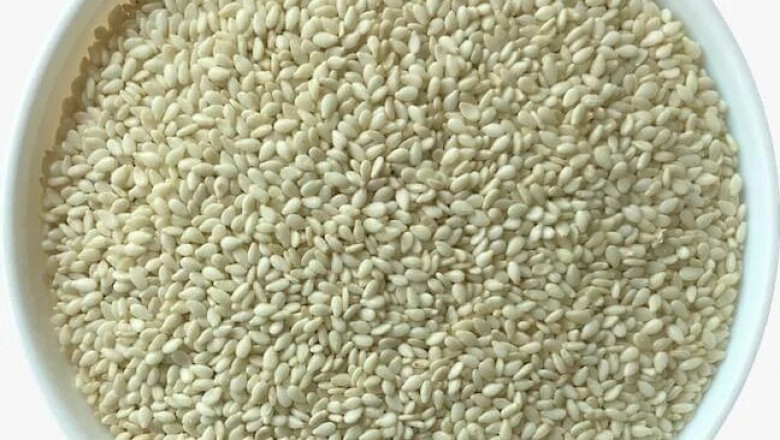views
Coriander seeds, derived from the Coriandrum sativum plant, are a popular spice used globally, appreciated for their warm, nutty flavor and health benefits. Both the seeds and leaves of coriander (also called cilantro) play a significant role in various cuisines, from Asian and Mediterranean to Mexican and Indian. This article delves into the origins, culinary uses, nutritional profile, and potential health benefits of coriander seeds, showcasing why these tiny, aromatic seeds are beloved in kitchens worldwide.
Origins and History
Coriander is one of the oldest cultivated spices, with evidence of its use dating back to ancient Egypt and Persia. Historical records show coriander seeds being used in rituals and as a medicinal herb in various ancient cultures. Greeks and Romans utilized coriander for culinary and medicinal purposes, while ancient Indian texts highlight its inclusion in traditional Ayurvedic medicine. Today, coriander seeds are grown worldwide, with major producers including India, Morocco, Canada, and Russia.
Culinary Uses
Coriander seeds add a distinctive flavor to dishes. When crushed or ground, they release a fragrant aroma and a unique flavor profile that blends citrusy, earthy, and mildly sweet notes. Here are some popular ways to incorporate coriander seeds in cooking:
Curries and Stews: Ground coriander is a staple in Indian and Middle Eastern spice blends such as garam masala and curry powder, providing a depth of flavor that complements spicy dishes.
Soups and Broths: Adding a few coriander seeds to soups enhances the overall flavor, lending warmth and a hint of sweetness.
Pickling: Coriander seeds are commonly used in pickling spices. Their flavor intensifies with time, adding complexity to the pickles.
Roasting and Baking: Toasting coriander seeds before grinding intensifies their flavor, making them ideal for spice rubs on roasted meats and vegetables.
Beverages: Some cultures use coriander seeds in beverages, like Indian masala chai or Moroccan teas, for a refreshing twist.
Nutritional Profile
Coriander seeds are not just flavor enhancers—they are also packed with nutrients:
Fiber: High in dietary fiber, which aids digestion and promotes a healthy gut.
Vitamins: Contains vitamins C, K, and B6, which are essential for immune function, blood health, and metabolic processes.
Minerals: Rich in calcium, potassium, magnesium, and manganese, supporting bone health, heart function, and energy production.
Antioxidants: Coriander seeds contain several antioxidants, including linalool, quercetin, and tocopherols, which help combat oxidative stress in the body.
Health Benefits
The nutrients in coriander seeds contribute to various potential health benefits, including:
Digestive Health: Coriander seeds are known for their carminative properties, meaning they help alleviate gas and bloating. The essential oils in coriander seeds stimulate the production of digestive enzymes, enhancing nutrient absorption and aiding digestion.
Anti-Inflammatory Effects: Due to its high antioxidant content, coriander seeds may reduce inflammation in the body, potentially benefiting people with conditions like arthritis and inflammatory bowel disease.
Heart Health: Coriander seeds contain compounds that may help lower blood pressure and improve cholesterol levels. Research suggests that they can help reduce LDL ("bad" cholesterol) while raising HDL ("good" cholesterol), promoting cardiovascular health.
Blood Sugar Management: Studies indicate that coriander seeds may help manage blood sugar levels. Compounds within coriander seeds can enhance the activity of insulin and lower blood sugar, making it a beneficial spice for those managing diabetes.
Antimicrobial Properties: The essential oils in coriander seeds, particularly linalool, exhibit antimicrobial effects. This can help prevent foodborne illnesses and may support immune function.
How to Use and Store Coriander Seeds
For the best flavor, buy whole coriander seeds and grind them as needed. To release the oils and enhance the flavor, lightly toast the seeds before grinding. Store coriander seeds in an airtight container, away from heat and light, to preserve freshness. Properly stored, they can last up to a year while retaining their flavor and nutritional properties.
Final Thoughts
Coriander seeds offer a unique combination of culinary versatility, distinctive flavor, and health benefits. Whether used in cooking or taken for potential medicinal benefits, coriander seeds are a valuable addition to any spice rack. As you experiment with these fragrant seeds, you may discover new depths of flavor in familiar dishes, adding both complexity and nutrition to your meals.






















Comments
0 comment